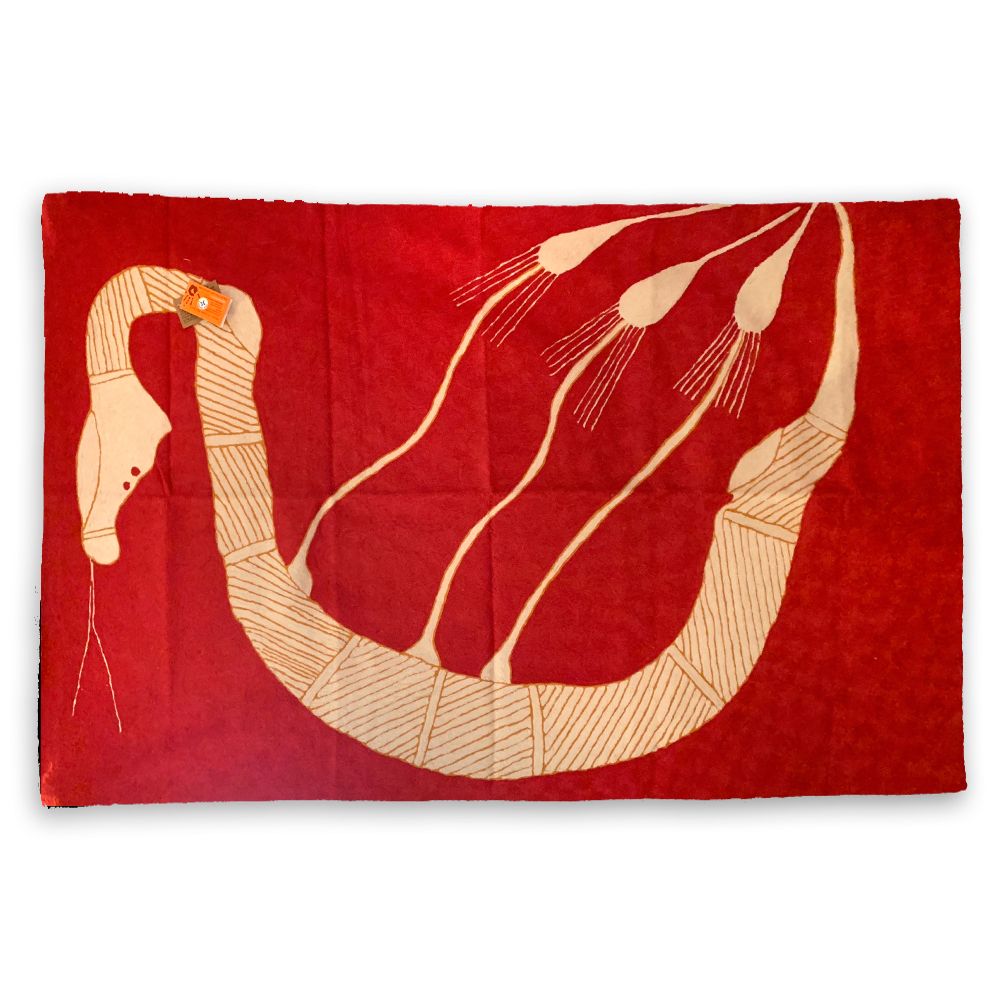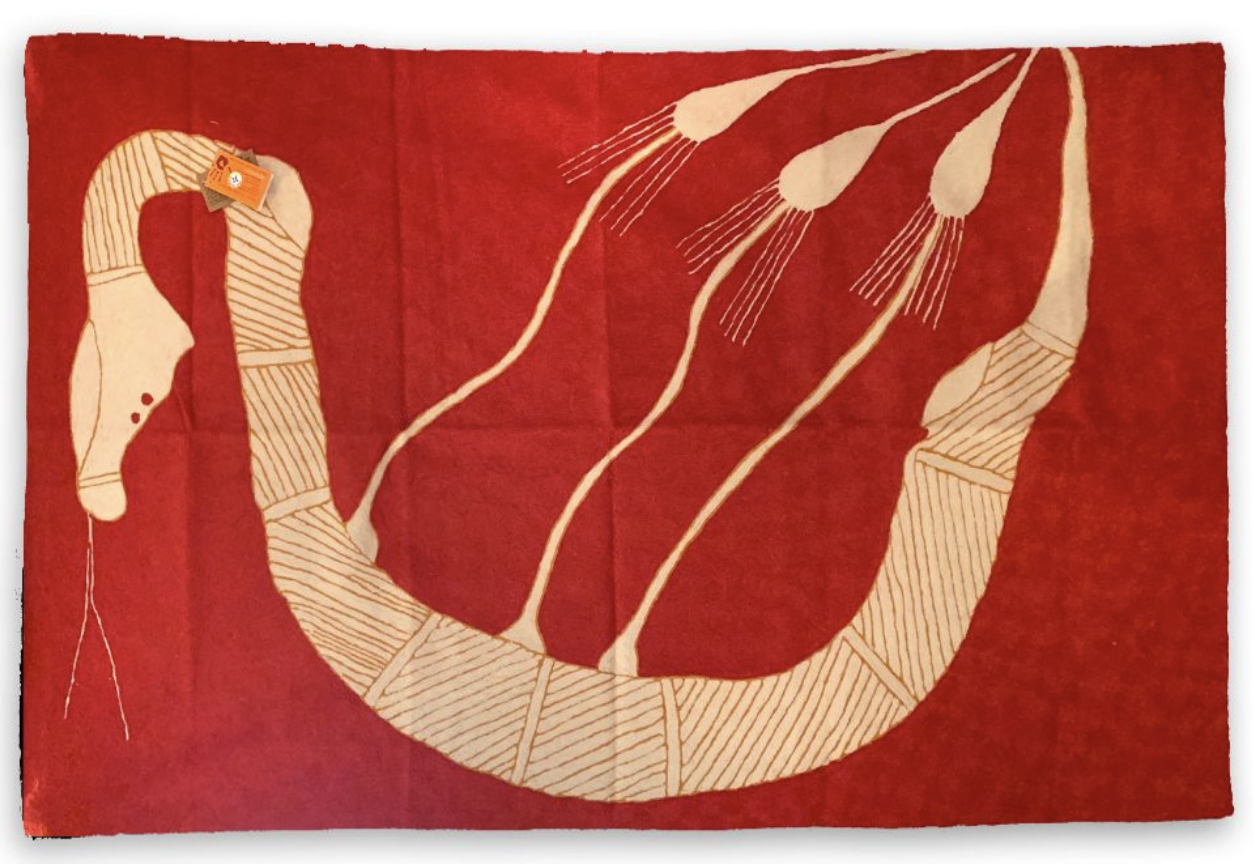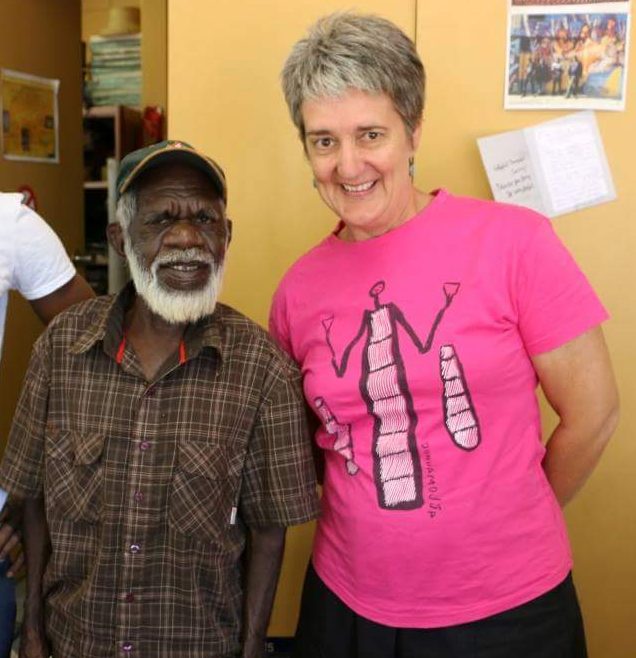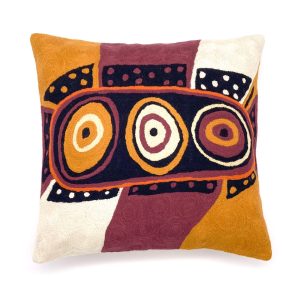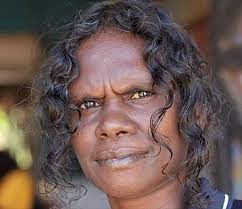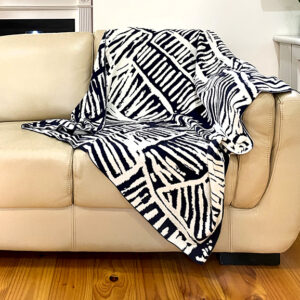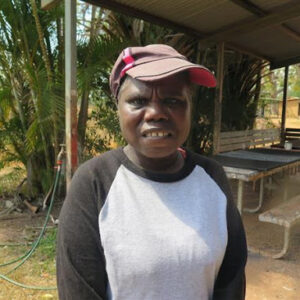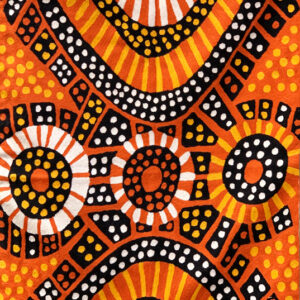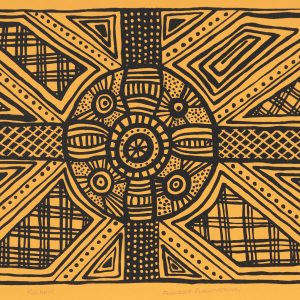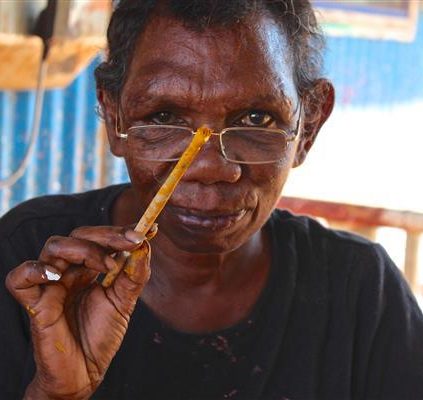Description
Composition: Hand dyed wool and cotton
Size: 122 x 183 cm (48 x 72 inches)
Features:
- Hand embroidered/chain-stitched
- All natural fibres – embroidered wool on cotton canvas
- Fair Trade certified
- Limited edition – individually numbered
- Certificate of Authenticity supplied with each kilim
- Royalties paid to the artist/family on every sale
- Hard wearing
- Back has non-slip surface
- Each kilim has flap on the rear for ease of hanging with dowel/rod
- Matching cushion covers are also available
- Note, the close ups are colour accurate
Chain-stitched kilims are a traditional rug/soft furnishings making technique from Kashmir. As people sat on the floor they were both homewares and decoration. As many artworks are painted on the ground or 3D surfaces/bodies most of the images do not have a set orientation so can also be hung portrait or landscape if preferred.
The artist:
Don is one of Western Arnhem Land’s most senior and respected artists. Don fondly remembers painting in the stone country with some of its most recognised artists including Bardayal ‘Lofty’Nadjamerrek and Kalarriya ‘Jimmy’ Namarnyilk. Don had his first solo exhibition in 2004. Nicholas Rothwell wrote in the Australian, “By any standards this debut exhibition is worthy of sustained attentionin the national media.” The freshness of Don’s paintings prompted the National Gallery of Australia to acquire two works from the RAFT Artspace in Darwin. He was selected for the prestigious National Aboriginal andTorres Strait Islander Art Awards in Darwin in 2003, 2005, 2006 and more recently in 2014.Don lives in Gunbanya (Oenpelli) in Western Arnhem Land and can often be found painng under the verandah at Injalak Arts
*
CARE INSTRUCTIONS:
Do not put place/use in direct sunlight or colors may fade. To clean – dry cleaning recommended. Can be ironed on a wool steam setting.
About the Better World Arts chainstitch kilim products
These beautiful, unique textiles are a cross-cultural collaboration combining Aboriginal designs and traditional Kashmiri rug-making techniques. Chain stitched, using hand dyed wool, each is a completely handmade piece. A more empowering way to work, this brings many direct benefits to the artists’ and their community. Control and ownership of intellectual property are also maintained. Purchase of these products guarantees a direct return to the Aboriginal artist’s family and their community.

